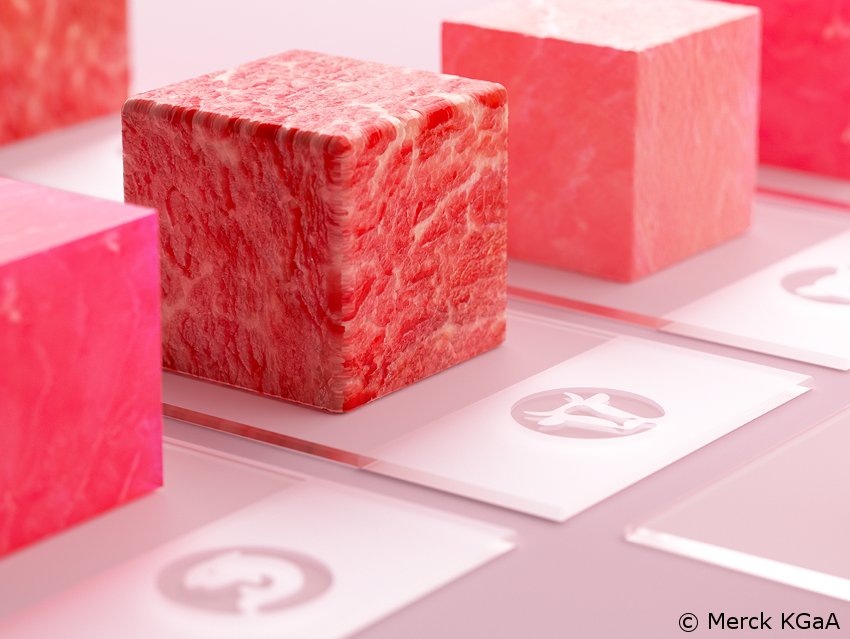The cultured meat industry is gaining momentum [1]. However, scaling up the production process and reducing costs remain key challenges. Merck launched a three-year collaboration with TU Darmstadt and Tufts University to conduct basic research on scalable next-generation bioreactor designs to support industrial-scale meat and seafood production.
Led by David Kaplan, a team at Tufts University is investigating textile bioengineering for whole muscle meat production. The aim is to develop a system of techniques that will enable the large-scale construction of tissue-engineered muscle and fat that is safe for human consumption. The team plans to design and construct a bioreactor capable of producing the optimized cultured meat tissue fibers in a scalable manner.
Under the leadership of the Department of Biomedical Engineering, Tufts University has expanded its influence in the field of cellular agriculture in recent years. They are developing technologies for growing sustainable meat using caterpillar stem cells to improving the color and texture of cultured meat.
Andreas Blaeser and his team, BioMedical Printing Lab, Institute of Printing Science and Technology (IDD) and Center for Synthetic Biology, TU Darmstadt, Germany, are developing a screen-printing process for large-scale production of multilayer bioink sheets that can be matured into thick, structured meat slices [2]. In contrast to conventional 3D bioprinting approaches, screen printing enables sheet-to-sheet biofabrication at very high production speeds and printing precision. The vision is to offer technical solutions as an open innovation platform for future research on clean meat production.
The two research groups are the winners of Merck’s 2020 Research Grant “Bioreactor Designs for Cultured Meat”. The joint projects with Tufts University and TU Darmstadt complement the research activities of the cultured meat team led by the Silicon Valley Innovation Hub and the Merck Innovation Center.
- Merck KGaA, Darmstadt, Germany
- Tufts University, Medford, MA, USA
- Technical University (TU) of Darmstadt, Germany
- Clean Meat – the food of the future?, Merck (accessed May 27, 2021)
- [1] First Approval for Lab-Grown Meat, ChemistryViews December 6, 2020.
The Singapore Food Authority has approved Eat Just’s cell-grown chicken, which is grown from stem cells taken from an animal’s fat or muscle - [2] Aurelien Forget, Andreas Blaeser, Florian Miessmer, Marius Köpf, Daniela F. Duarte Campos, Nicolas H. Voelcker, Anton Blencowe, Horst Fischer, V. Prasad Shastri, Mechanically Tunable Bioink for 3D Bioprinting of Human Cells, Adv. Health. Mat. 2017. https://doi.org/10.1002/adhm.201700255
Also of Interest
- Funding Information
- Matt Reynolds, The hunt for the master cow that will feed the world, Wire May 25, 2021 (accessed May 27, 2021)
- Victoria Barton, Growing Steaks in the Lab, ChemistryViews June 7, 2016. https://doi.org/10.1002/chemv.201600042




